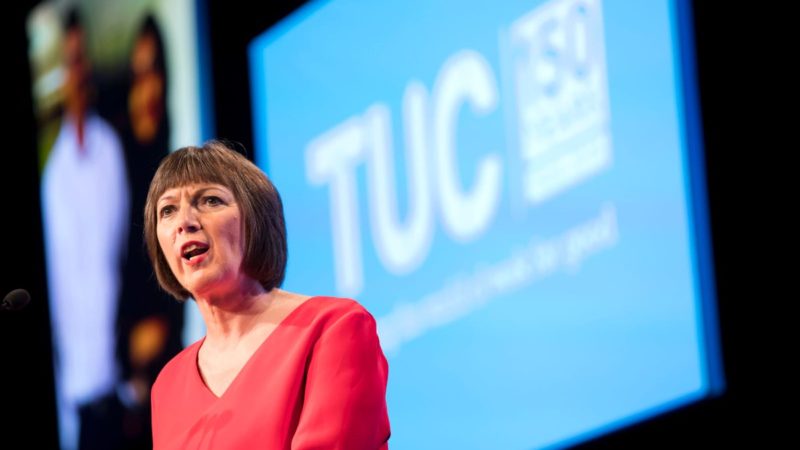
The TUC has declared that it is “time to put an end to low-pay Britain” as it unveiled a plan to deliver a national £15 minimum wage and called on the government to work with the Low Pay Commission to deliver it “as soon as possible”.
In a report published today, the trade union federation urged the government to move towards a £15 minimum level of hourly pay while removing the lower minimum wages for younger workers.
The minimum wage for those aged 23 and over is £9.50, £9.18 for those aged 21 to 22, £6.83 for 18- to 20-year olds and £4.81 for those under 18.
The TUC said workers are facing pay loss of “historic proportions” because of the “abject failure” of Tory governments to ensure wage growth. Average wage growth, before inflation, between 1997 and 2010 was 3.8% a year but has slowed significantly since the 2008 financial crisis. The TUC has called on ministers for:
- “A plan to strengthen and extend collective bargaining across the economy including introducing fair pay agreements to set minimum pay and conditions across whole sectors;
- “A macroeconomic approach which boosts demand and creates growth;
- “A life-long learning and skills strategy to fill labour shortages, boost productivity and so workers can update their skills throughout their working life;
- “Corporate governance reform to prioritise long-term sustainable growth, rather than short-term focus on shareholder returns;
- “Industrial and trade policies to promote good jobs and ensure that businesses compete on a level playing field;
- “Making decent jobs a requirement of all government spending and procurement; and
- “A plan to help small businesses shift to a high wage model.”
“Ministers promised a high wage economy time and time again, but they need a real plan to deliver it – not just a convenient political slogan,” Frances O’Grady said.
“We can’t keep lurching from crisis to crisis. Working families need long-term financial security – that means reversing the destructive trend of standstill wages.
“Ministers should introduce fair pay agreements to get pay and productivity rising in low-paid sectors. They should promote decent work above shareholder interests. And they should invest in good jobs in every corner of the country.”
The TUC has also called for the minimum wage uprating to be brought forward to October as households face a “desperate autumn and worse winter”, rather than waiting until April 2023, and for the minimum rate to rise in-line with inflation.
The TUC general secretary added: “Every worker should be able to afford a decent standard of living. But millions of low-paid workers live wage packet to wage packet, struggling to get by – and they are now being pushed to the brink by eye-watering bills and soaring prices.”
Since the minimum wage was introduced in 1997, its level as a proportion of the median wage has increased from 47% and is predicted to rise to 66% in 2024. In its report, the TUC has said a more ambitious target of 75% is needed to deliver a £15 minimum wage.
The federation of trade unions argued that with the 66% target looking “almost certain” to be achieved a 75% target is the “next logical step”, highlighting that increases in the wage have consistently taken place without a rise in unemployment.
“Higher wages are good for the economy – more money in the pockets of working people means more spend on our high streets,” O’Grady said.
“Let’s get wages rising in every corner of the country and get on the pathway to a £15 per hour minimum wage.”
The union body stated that to get to a £15 minimum wage, assuming a target of 75% of the median wage, hourly median pay of approximately £20 an hour would need to be delivered. Median wages in the UK are currently £14.85.




More from LabourList
Labour place third in Gorton and Denton by-election as Greens gain seat
‘What Batley and Spen taught me about standing up to divisive politics’
‘Security in the 21st century means more than just defence’